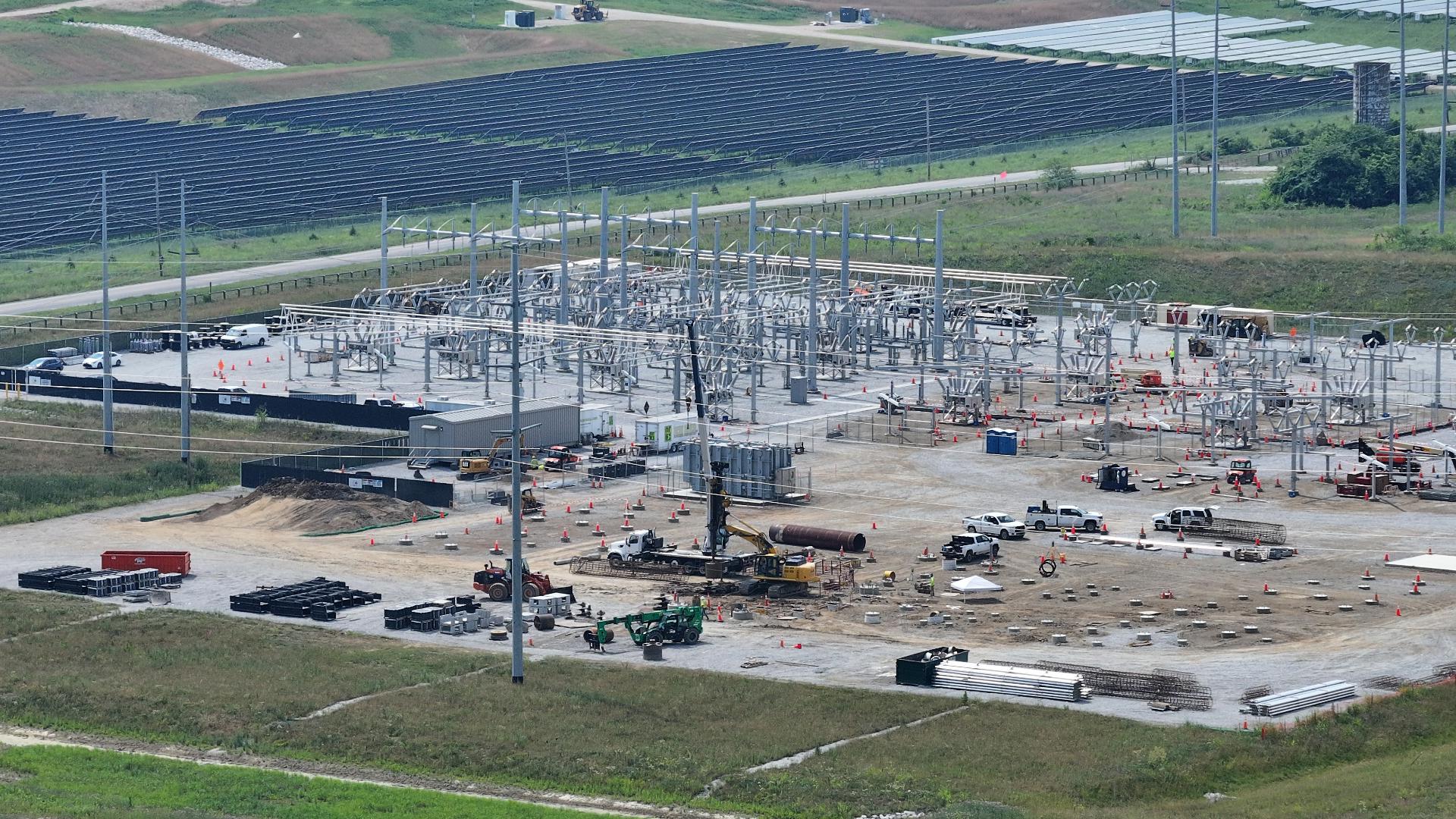COLUMBUS, Ohio — Google announced Tuesday it is investing an additional $2.3 billion into its data centers in central Ohio.
Three of Google’s 17 data centers are in central Ohio, operating out of New Albany, Lancaster and Columbus. These data centers form the “Columbus Cloud Region” and support web services for the State of Ohio, Nationwide, Wendy’s and more.
Data centers consume large amounts of electricity to operate without creating a large number of jobs once construction is complete. The drain on the power grid is a concern as more and more are needed to maintain an ever-connected society.
A study by real estate advisor Newmark found the largest data centers use enough electricity to power 80,000 households. AEP’s interim CEO Ben Fowke said in a recent earnings call that the company already experienced 15 Gigawatts of demand from large companies like data centers and anticipates that to significantly increase by 2030.
"Every sector of our economy is going to rely on some form of digital interface with cloud computing. The home of that right now in the Midwest is central Ohio,” said Lt. Gov. Jon Husted when pressed on the issue. “We just need to keep up with the infrastructure. It creates huge energy demands, water demands. We have to do this in a sustainable way.”
Husted said it won’t be possible to make up for the demand by the way of solar and wind. He sees the expansion of natural gas and nuclear power to make up the gap.
“We are literally in constant communications with AEP and these companies to make sure we have an adequate supply of energy. It’s going to require us to continue to build that infrastructure,” he said.
Google executives Monday said their data centers are among the most energy efficient in the world, but they are looking at ways to reduce their impact on the power grid.
“We want to continue the discussion about making sure whether it’s energy efficiency or new clean technologies, or whatever it is. If there’s more energy, central Ohio grows more,” said Mark Isakowitz, Google’s VP of Government Affairs and Public Policy for the US and Canada. “We just want to lean into the issue and be part of the discussion of finding additional energy resources, be efficient, be clean and so forth.”
Google has made it a goal to run its data centers worldwide on carbon-free energy by 2030. In 2023, Google announced a partnership with EDP Renewables to create a 500-megawatt community-based energy portfolio with projects mainly in Ohio.
The Ohio Consumer’s Counsel is keeping an eye on these expansions as well. AEP recently filed a plan to hold large energy users, like data centers, accountable for their power usage. The plan would require these operators to commit to their estimated energy usage, even if they don’t use it to cover the cost of building up the grid to support the usage. It also attempts to protect residential users from having these costs passed along to them. The OCC said it wants to make sure that AEP holds to its commitment not to pass along those expenses.
“Times are tough for consumers, especially AEP’s consumers, who are facing a billion-dollar distribution rate increase over the next five years. New, big business customers, like data centers, should not be allowed to pile on by adding tens of millions of dollars in transmission costs to other consumers’ bills,” read a statement from Maureen Willis, Agency Director of the Office of the Ohio Consumers’ Counsel.

